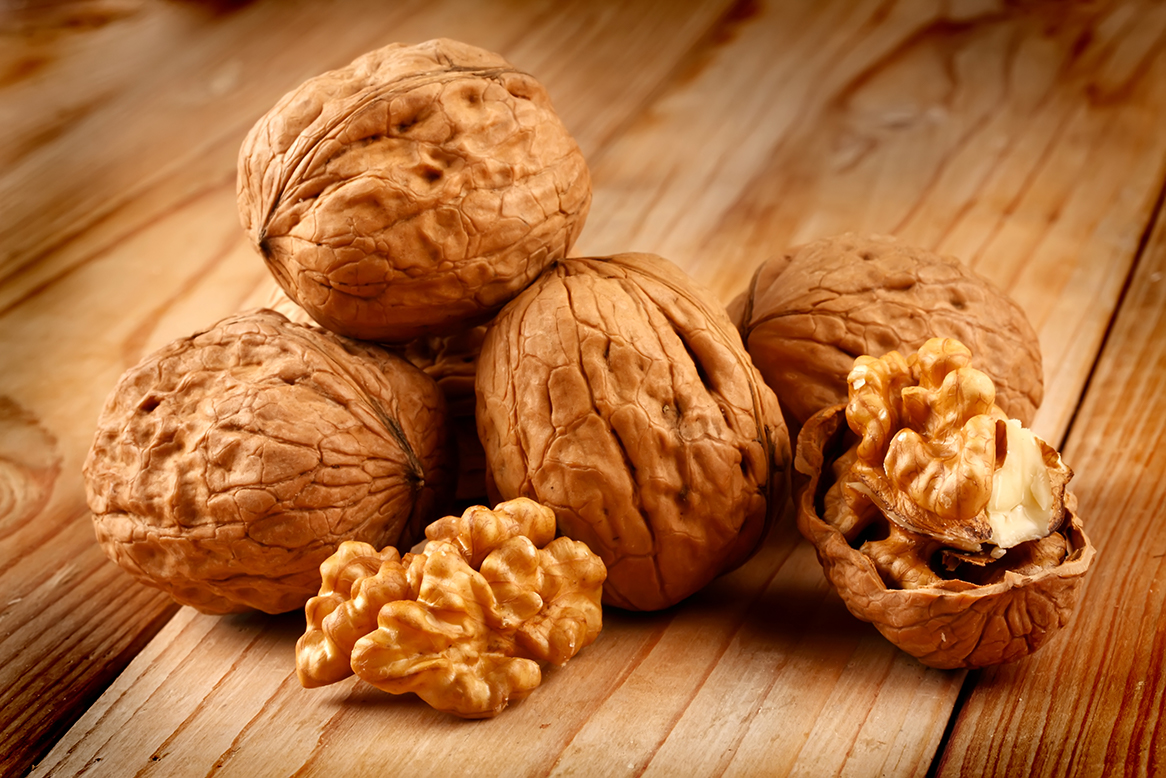Anti-Aging Benefits of Walnuts
Posted on April 5, 2016. Recent study explores the benefits of walnuts in regards to age-related health issues.
Previous studies have shown that walnuts may slow cancer and improve memory, concentration, and information processing speed, as well as lowering diabetes risk and boosting male fertility. Now, more recently, initial findings from the Walnuts and Healthy Aging (WAHA) study presented at Experimental Biology 2016, are showing that daily walnut consumption positively impacts blood cholesterol levels, without adverse effects on body weight among older adults. The WAHA study is a dual site 2-year clinical trial, conducted by researchers from the Hospital Clinic of Barcelona and Loma Linda University and is focused on determining the effect that walnuts have on health issues that are age-related.
The 707 adults enrolled in this study consumed either a daily dose of walnuts (less than 15% of daily caloric intake), or a diet absent of all nuts. There was no guidance given with total calorie and macronutrient intake, or food substitutions for walnuts. After one year, those whose diets consisted of walnuts resulted in significant reductions in LDL cholesterol in comparison with the nut-free diet. There was no evident effect on body weight, triglycerides, and HDL cholesterol, for either group.
Additional new research abstracts presented at the EB meeting included information regarding walnuts and the following:
Gut health
– A recent study conducted by researchers at the Agricultural Research Service, United States Department of Agriculture (USDA) found that eating 1.5 ounces of walnuts daily positively & significantly affects the bacteria in the human gut, in a manner that is favorable to decreasing inflammation and cholesterol, which are two known indicators of heart health.
Hunger and Satiety
– For the first time, it has been shown that the types of fat consumed on a daily basis can change long-term appetite responses, such as hunger and satiety. Researchers from the University of Georgia found that eating a diet high in polyunsaturated fat, after meals rich in saturated fat, favorably alters hunger and satiety markers. At 13 grams per ounce, walnuts are a great choice for getting more polyunsaturated fat.
Metabolic Health
– A recent study conducted at Oregon State University found that a diet consisting of walnuts supplemented with polyphenol-rich foods such as raspberries, cherries or green tea may help reduce inflammation. This study was conducted on mice who were given walnuts on their own or along with polyphenol-rich foods, however, as it was performed on animals, the results can not yet be considered applicable to humans.




